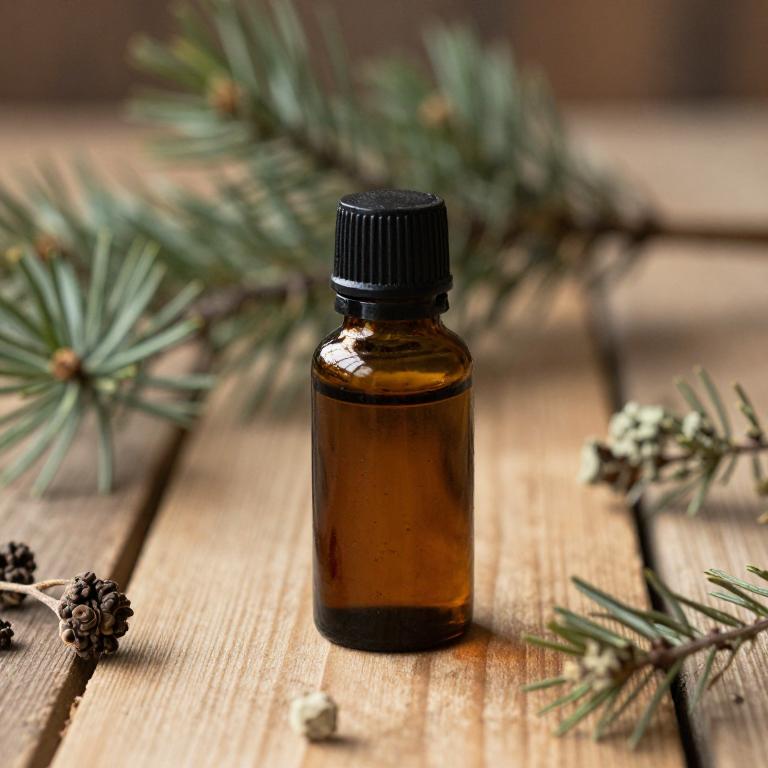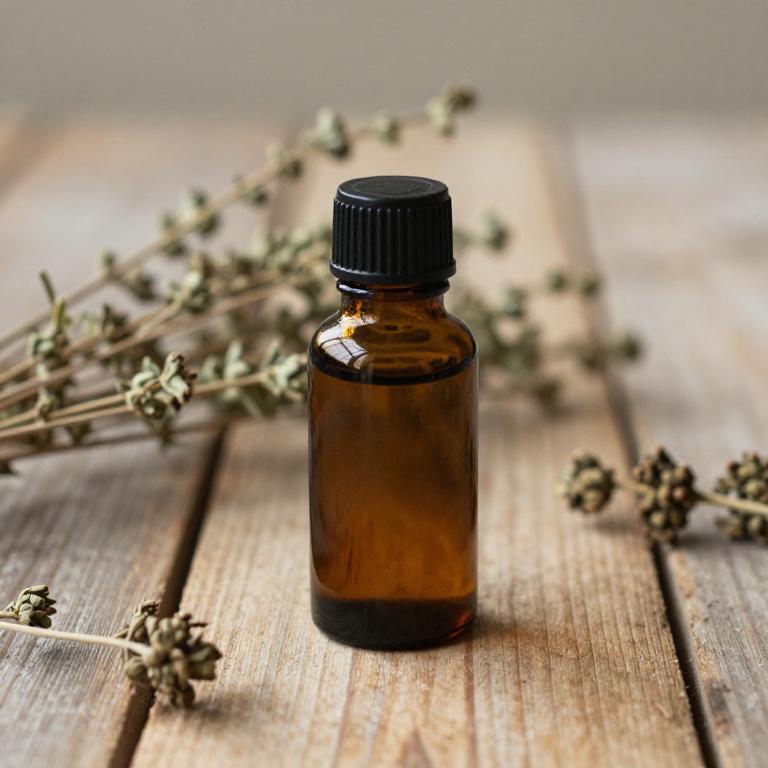10 Best Herbal Essential Oils For Dry Cough

Herbal essential oils such as eucalyptus, peppermint, and thyme are commonly used to alleviate symptoms of dry cough due to their expectorant and anti-inflammatory properties.
These oils can help reduce irritation in the respiratory tract and ease breathing by promoting mucus clearance and soothing inflamed airways. When used in steam inhalation or diffused in a room, they provide a natural and aromatherapy-based approach to managing cough symptoms. However, it is important to dilute essential oils properly and consult with a healthcare professional before use, especially for children or individuals with asthma.
While they can offer relief, they should not replace medical treatment for persistent or severe coughs.
Table of Contents
- 1. Eucalyptus (Eucalyptus globulus)
- 2. Thyme (Thymus vulgaris)
- 3. Scots pine (Pinus sylvestris)
- 4. Peppermint (Mentha piperita)
- 5. Ginger (Zingiber officinale)
- 6. Oregano (Origanum vulgare)
- 7. English lavender (Lavandula angustifolia)
- 8. Cloves (Syzygium aromaticum)
- 9. Ceylon cinnamon (Cinnamomum zeylanicum)
- 10. Chamomile (Matricaria chamomilla)
1. Eucalyptus (Eucalyptus globulus)

Eucalyptus globulus, commonly known as Australian tea tree or blue gum, is a popular source of essential oil renowned for its therapeutic properties.
The essential oil derived from its leaves contains potent compounds like eucalyptol, which possess antimicrobial and anti-inflammatory effects. It is often used in aromatherapy and topical applications to alleviate symptoms of dry cough by helping to clear respiratory passages and reduce mucus buildup. When diluted with a carrier oil, it can be applied to the chest or inhaled through steam inhalation to provide soothing relief.
However, it is important to consult a healthcare professional before use, especially for children or individuals with existing health conditions.
2. Thyme (Thymus vulgaris)

Thymus vulgaris, commonly known as thyme, is a popular herb used in traditional medicine for its potent essential oils, which are often employed to alleviate symptoms of dry cough.
The essential oil of thyme contains compounds like thymol and carvacrol, which have antimicrobial and anti-inflammatory properties that can help reduce irritation in the respiratory tract. When used in aromatherapy or as a steam inhalation, thyme essential oil may help soothe the throat and ease persistent dry coughs. However, it is important to dilute the oil properly before use to avoid skin irritation.
As with any herbal remedy, it is advisable to consult a healthcare professional before using thyme essential oil, especially for prolonged or severe coughing conditions.
3. Scots pine (Pinus sylvestris)

Pinus sylvestris, also known as Scots pine, produces an essential oil that is often used in herbal medicine for its soothing and anti-inflammatory properties.
This oil contains compounds like alpha-pinene and limonene, which may help to reduce irritation in the respiratory tract and ease coughing. When used in steam inhalation or diluted in a carrier oil, it can provide relief for dry coughs by promoting relaxation of the airway muscles. It is particularly beneficial for individuals experiencing persistent, non-productive coughs due to its expectorant and decongestant effects.
However, it should be used with caution and under the guidance of a healthcare professional, especially for those with asthma or other respiratory conditions.
4. Peppermint (Mentha piperita)

Mentha piperita, commonly known as peppermint, is a versatile herb whose essential oil has been traditionally used to alleviate symptoms of dry cough.
The oil contains potent compounds like menthol and limonene, which have soothing and expectorant properties that can help reduce throat irritation and loosen mucus. When used aromatically or in inhalation therapy, peppermint essential oil can provide a cooling effect that soothes the respiratory tract and eases coughing fits. It is often diluted with a carrier oil before topical application to the chest or throat for localized relief.
While generally safe, it is important to consult a healthcare professional before using peppermint essential oil, especially for children or individuals with certain medical conditions.
5. Ginger (Zingiber officinale)

Zingiber officinale, commonly known as ginger, is a popular herb used in traditional medicine for its various therapeutic properties, including its ability to alleviate dry cough.
The essential oils derived from ginger contain bioactive compounds such as gingerol and shogaol, which possess anti-inflammatory and bronchodilatory effects. These oils can help reduce throat irritation and soothe the respiratory tract, making them beneficial for managing persistent dry cough symptoms. When used in aromatherapy or diluted in carrier oils, ginger essential oil may provide relief by promoting expectoration and reducing mucus buildup.
However, it is important to consult a healthcare professional before using essential oils, especially for individuals with allergies or underlying health conditions.
6. Oregano (Origanum vulgare)

Origanum vulgare, commonly known as oregano, is a herb widely used in traditional medicine for its potent essential oils, which are rich in compounds like carvacrol and thymol.
These oils have antimicrobial and anti-inflammatory properties that can help soothe the throat and reduce irritation associated with dry cough. When used in aromatherapy or as a diluted topical application, oregano essential oil may help alleviate respiratory discomfort and support the body’s natural healing processes. However, due to its strong potency, it should always be diluted before use and consulted with a healthcare professional, especially for prolonged or severe coughing.
Overall, oregano essential oil can be a valuable complementary therapy for managing dry cough when used appropriately.
7. English lavender (Lavandula angustifolia)

Lavandula angustifolia, commonly known as English lavender, is a popular source of essential oil that has been traditionally used for its calming and therapeutic properties.
The essential oil derived from this plant contains compounds such as linalool and linalyl acetate, which are known for their anti-inflammatory and antispasmodic effects. When used for dry cough, lavender essential oil may help soothe irritated airways and reduce the frequency of coughing by easing respiratory discomfort. It can be diluted and applied topically to the chest or used in a diffuser to promote relaxation and ease breathing.
However, it is important to consult a healthcare professional before using essential oils, especially for persistent or severe cough symptoms.
8. Cloves (Syzygium aromaticum)

Syzygium aromaticum, commonly known as clove, is a plant native to the Maluku Islands in Indonesia, and its essential oil is widely used in aromatherapy and herbal medicine.
The essential oil of clove contains high concentrations of eugenol, which has potent anti-inflammatory and analgesic properties that can help alleviate symptoms of dry cough by reducing irritation in the respiratory tract. When used in steam inhalation or diffused into the air, clove essential oil may help soothe the throat and ease breathing, making it a natural remedy for persistent dry cough. However, it is important to dilute the oil properly before use, as it can be irritating if applied undiluted to the skin or inhaled in high concentrations.
Clove essential oil is often combined with other herbs like eucalyptus or peppermint to enhance its effectiveness in treating respiratory discomfort.
9. Ceylon cinnamon (Cinnamomum zeylanicum)

Cinnamomum zeylanicum, commonly known as cinnamon bark, is a valuable source of essential oils that have been traditionally used for their therapeutic properties.
The essential oil extracted from its bark contains a high concentration of cinnamaldehyde, which possesses antimicrobial and anti-inflammatory effects. These properties make it beneficial in alleviating symptoms of dry cough by soothing the respiratory tract and reducing irritation. When used in aromatherapy or diluted in a carrier oil, cinnamon essential oil can help ease coughing and promote clearer breathing.
However, it should be used with caution, as it may cause skin irritation or allergic reactions in some individuals.
10. Chamomile (Matricaria chamomilla)

Matricaria chamomilla, commonly known as German chamomile, is a popular herb used in the production of essential oils that may provide relief for dry coughs.
The essential oil derived from its flowers contains compounds such as bisabolol and chamazulene, which have anti-inflammatory and antispasmodic properties. These properties can help soothe irritated airways and reduce coughing spasms, making it a natural remedy for dry, persistent coughs. When used in aromatherapy or diluted in a carrier oil, chamomile essential oil may offer calming effects that support respiratory comfort.
However, it is important to consult with a healthcare professional before using essential oils, especially for prolonged or severe cough symptoms.